''Winter will be long'': experts about Vladimir Putin’s annual address
Speaking of changes, the president himself isn’t going to change
The president of Russian addressed the Federal Assembly with the traditional, already 14 th message. This time Vladimir Putin paid much attention to defence – the audience was shown 6 videos and 17 slides as an illustration of the military power of Russia. Realnoe Vremya's experts call this imbalance presupposing the low priority of social issues he demonstrated.
Military way of the message
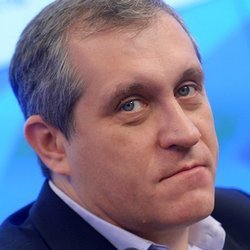 Political expert, opinion journalist Boris Mezhuyev admitted he unexpectedly hit the target when supposing the address would be quite ''militarised''.
Political expert, opinion journalist Boris Mezhuyev admitted he unexpectedly hit the target when supposing the address would be quite ''militarised''.
''Putin started his activity as president at the moment when the USA left the ABM Treaty, it's one of the major decisions of Bush's administration. There is a feeling that Putin had been looking for a reply to it from the very beginning, and not just for one-two years, not just for one term. It seems he couldn't give a decent reply for a long time. It's the main goal he set for himself. In general, if Russia's safety isn't provided, they won't need to speak about any sovereignty as well as of the very fact of the existence of Russia. In this respect, it's more than an address. It's a statement of his historical mission,'' the expert is convinced.
Mezhuyev thinks that the address makes a strong impression, in the main. In his opinion, the first part of Putin's speech dedicated to social issues was no less important because military power makes sense in the interests of peaceful existence of Russians.
Mobilisation inside country
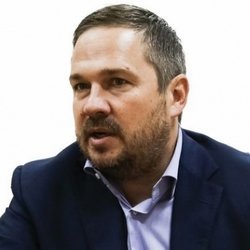 Head of Crimean Project expert group Igor Ryabov expected this kind of address in which he saw demonstration of power, warning to western partners that they don't encroach on our sovereignty and Russia had what to reply with.
Head of Crimean Project expert group Igor Ryabov expected this kind of address in which he saw demonstration of power, warning to western partners that they don't encroach on our sovereignty and Russia had what to reply with.
''The less important part is that we will augment the military, technical and educational potential without forgetting about the level of life, medicine and humanitarian aspects. In fact, this is Putin's programme all will vote for. Especial attention to the military topic is paid to mobilise inside the country, so that all people will believe Russia is under protection because a targeted job with minds inside the country has been done in the last years. The West says the power is there, while we are weak. The address is a strong impact on both western partners who also believe in their power that, actually, doesn't exist,'' Ryabov thinks.
The address to the population was to turn the nervous situation upside down. After the address, all need to understand the country is under protection. Some moments surprised the expert. For instance, Putin's address to Kazan's experience drew the attention. Its example in the sphere of upgrading the urban environment and infrastructure will be used across the country, much money will be invested in it. Amendments in medicine were promised – the quality of service has lost due to the latest reforms, we need to return to the normal model. The political expert heard the president of the country urged all be strong, not to forget about our place in the world.
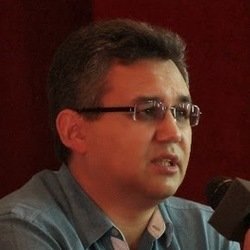 The accent on the military power isn't a sign of unconditional power, political expert Abbas Gallyamov supposes. In the current circumstances, Putin is likely to be a hostage of his own success.
The accent on the military power isn't a sign of unconditional power, political expert Abbas Gallyamov supposes. In the current circumstances, Putin is likely to be a hostage of his own success.
''The topic of power is the key accent. 'We're strong, and all enemies must be afraid of us, the rest is secondary.' It's obvious the next six years will be the same, there won't be a radical change of the course,'' the expert is sure. ''Such attention to the military topic is quite natural. Putin is in a bind, he is the hostage of his own success.'' The president bet on the conservation of the situation inside the country and focus on external enemies. This brings him votes, popularity. If he suddenly tries to become a moderniser, start serious reforms, it will look not like a consequence of internal beliefs but a forced step – that he knuckled under the enemy. Who requires democracy? The Americans. It means he demonstrated weakness. For a politician who performs in the nomination ''the strongest'', it is impossible, it's his destruction. This is why he can't afford to change something radically. Consequently, he has to continue the course he chose before. In this respect, he's not a leader but a follower. Nothing new has happened here. It's usual ritual words that freedom and democracy are good, business can't be frightened, investments in social commitments of the country will increase and then, my favourite topic, we are so strong that enemies must be afraid of us.
Launch of rockets – sign of threat
''Part of the address was good. The term the ''space of freedom'' sounded – it's a concept that came from the EU. Speaking of this space, Putin gave to understand we were European civilisation, part of Europe. But then when it was said the West could be taught a lesson, my enthusiasm ran out,'' head of Political Expert Group Konstantin Kalachev notes.
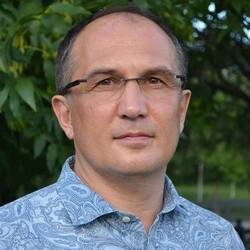 ''It seems the refusal of the course for confrontation with the surrounding world isn't expected. The launch of rockets on the screen can be interpreted as a sign that we're threatening. We can immediately say it's not true, but it will be interpreted so. In brief, the isolation will go on to a certain degree.''
''It seems the refusal of the course for confrontation with the surrounding world isn't expected. The launch of rockets on the screen can be interpreted as a sign that we're threatening. We can immediately say it's not true, but it will be interpreted so. In brief, the isolation will go on to a certain degree.''
An offer to count on our own forces was made, but this presupposes a certain plan. ''Not only the words ''need'', ''must'' are needed. Any ambitions require a financial foundation. There is a question where to get money from. Every year it's said about a better business climate in the country, about its higher attractiveness. Has it been done a lot in this area? No, it hasn't. Every year the same thing is said about the necessity to help pensioners, while today he told about pension indexation that was ahead of inflation. We need to remind that there hasn't been indexation in the last years, while pension savings were frozen,'' Kalachev says.
The expert didn't hear anything new to himself. There was hope the address would be completely dedicated to everyday agenda, but the key topic came to the idea ''Strong President – Strong Russia''. The majority of the population isn't against a strong country. But at the same time, it wants money in pockets and food in the fridge, notes the political expert.
''After this address, there is a feeling the winter will be long. The economy is needed to provide defence and security, while the rest is secondary. The hall's reaction is illustrative – everybody kept silent when it was told about falling behind. The topic of enemies creates more enthusiasm than the necessity to change themselves for the better. The problem is that people are afraid of foreign affairs, there is an obvious imbalance here. Speaking of changes, Vladimir Putin himself isn't going to change. Though I'm sure many people will like today's address,'' admits Kalachev.
Lack of specificity
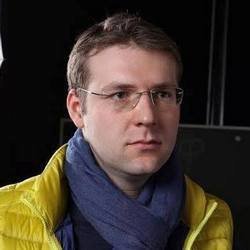 Director of the Regional Politics Centre Ilya Graschenkov also had a similar impression of the speech of the country's president. He hoped for more specificity, ''new May decrees''. In the end, there were many words and wishes.
Director of the Regional Politics Centre Ilya Graschenkov also had a similar impression of the speech of the country's president. He hoped for more specificity, ''new May decrees''. In the end, there were many words and wishes.
''We want to be a digital economy, lead in markets, improve medicine and ecology. At the same time, we applaud rockets that consume half of the ''peaceful budget'', all this medicine and education. As a result, there are unpopular reforms, reduction of personnel, unemployment and low salaries. There was an expectation that Putin's last term would be somehow life-changing, something completely new would be announced. But, in fact, we heard about the old set of problems and didn't hear anything about how to solve them. It's unclear whether there will be key reforms, whether the government will change, whether Putin likes it, whether he likes the economy. A record harvest is good, but we need to understand forecasts. Export is also good, but won't the situation of the USSR when there was not enough food in the country due to export repeat?'' Ilya Graschenko thinks.
He noted several important points of Putin for himself, including the development of regions, use of their potential. But working on it can be turn out a tough task due to the vertical power.